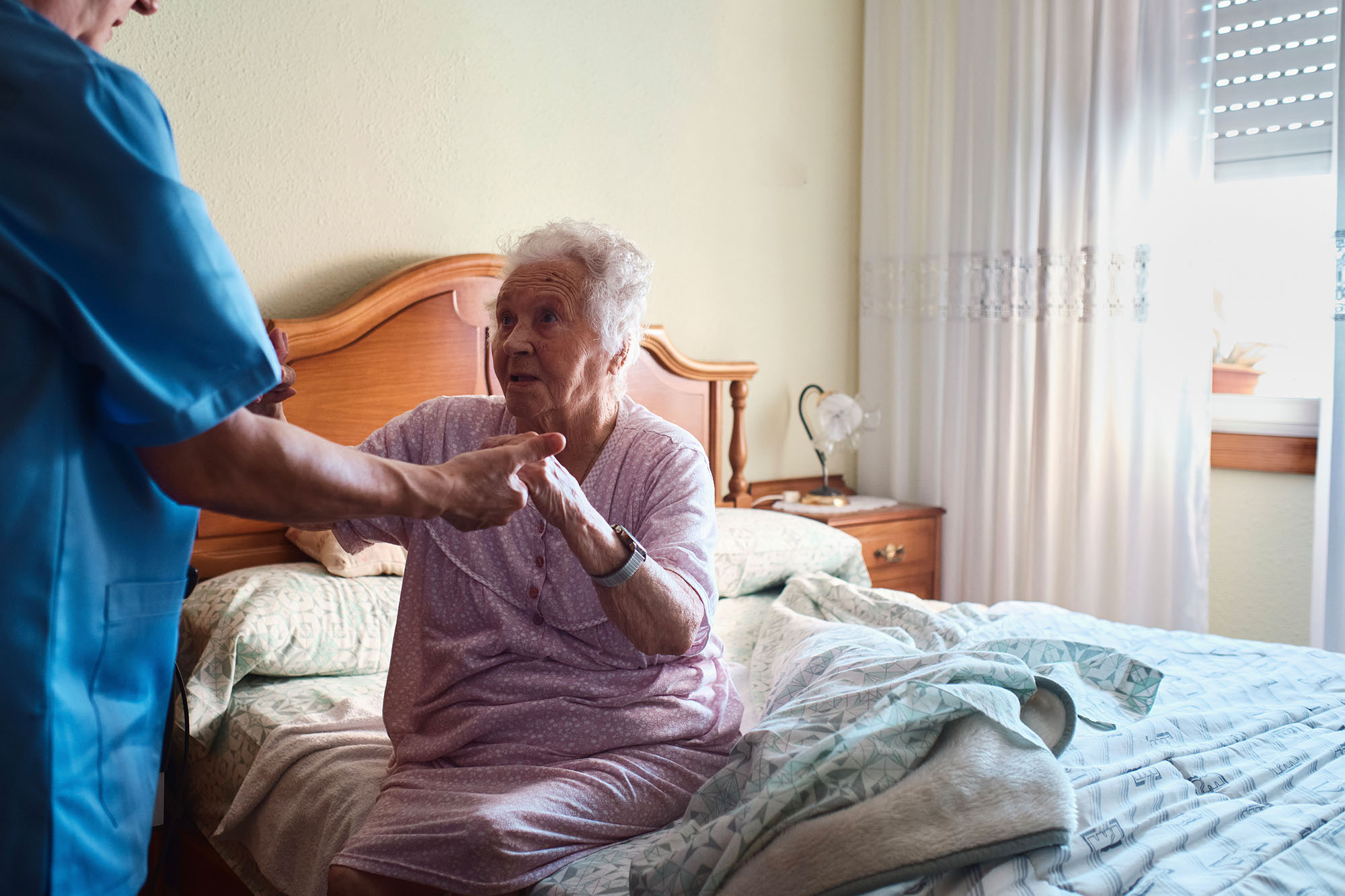Opportunity 3. Advocacy
Opportunity: Ensure that palliative care is a priority for policymakers, health care system leaders, and allied organizations.
Potential stakeholder actions:
- Keep palliative care visible to policymakers and government organizations.
- Highlight the value of palliative care in meeting other key health care priorities.
- Increase partnerships with disease-focused and other aligned organizations that can incorporate palliative care advocacy into their own agenda.
Although tremendous strides have been made in the visibility and value recognition of palliative care (PC), it is still far from being the standard of care for everyone with a serious illness. Ongoing, strong voices advocating for PC are still needed to ensure it is understood and prioritized by policymakers and health care leaders.
“And I have not yet met anyone — a policymaker, patient, provider — who, when they learn about and understand palliative care, they think, ‘Oh, we don’t need to do that.’ No, of course we do. But like everything else at the state level, there are so many interests and so many priorities. We need to just keep up the dialogue, keep up the awareness so that we can just keep palliative care on the table for the discussions around important health care policies.”
—Anastasia Dodson, MPP, Deputy Director, California Department of Health Care Services
Action: Keep palliative care visible to policymakers and government agencies.
As PC initiatives compete with many other health care priorities, leaders in the PC field should strategically focus on specific policy and implementation goals, ensuring these priorities remain prominently emphasized when engaging with policymakers and government agencies. Sustained efforts such as making regular phone calls, sending emails, and participating in meetings, as well as documenting and publishing stories that underscore demand for PC, are indispensable. Advocates within government need this continual presence to help justify the allocation of resources to PC amid the array of competing interests and demands. The turnover of policy staff also requires ongoing education about the essence and value of PC and its alignment with broader health care priorities.
Furthermore, numerous health care policies and initiatives targeting older adults or people grappling with complex or severe illnesses could benefit from incorporating palliative care. Leaders in the field should continue to proactively advocate for the integration and implementation of palliative care within complementary initiatives, as they have started to do as part of California’s Master Plan for Aging and CalAIM (California Advancing and Innovating Medi-Cal).
The Coalition for Compassionate Care of California is actively involved in state-level advocacy, and stakeholders in California should participate in and engage with those efforts.
Action: Highlight the value of palliative care in advancing other health care system priorities.
Along with PC’s stand-alone value, the field should emphasize how PC contributes to other key health care industry priorities including whole-person care, equity, home-based medical services, reducing clinician burnout, dementia care, home-based medical services, and financial value. (See “Examples of How Palliative Care Contributes to Other Key Health Care Priorities.”)
Examples of How Palliative Care Contributes to Other Key Health Care Priorities
| Example Priority | How Palliative Care Supports the Priority |
|---|---|
| Achieve Whole-Person Care | Palliative care, with its focus on understanding a patient’s values and wishes and helping meet their broader physical, spiritual, and social service needs, is a critical part of whole-person care for people with serious illness. |
| Foster Equity | By centering the unique needs of the individual, palliative care can help bridge gaps in care for people of color and other underserved groups. |
| Provide Comprehensive Home-Based Medical Services | Only 11% of homebound Medicare enrollees are currently receiving home-based medical services. As health systems and health plans are beginning to realize the value of home-based medical services to improve quality and reduce unnecessary health care utilization, home-based palliative care has one of the strongest evidence bases for quality improvement and cost savings. |
| Reduce Clinician Burnout | Among US doctors, 63% in 2021 and 44% in 2017 (pre-COVID-19 pandemic) reported symptoms of burnout. Palliative care (PC) can help reduce burnout of non-palliative care clinicians. PC teams can save non-PC clinicians time by conducting complex goals-of-care conversations and reduce moral distress of non-PC clinicians by teaching them generalist PC skills such as how to have difficult conversations on prognosis. |
| Improve Advanced Dementia Care | In 2025, 840,000 Californians are expected to be living with Alzheimer’s disease (PDF), an increase of 22% from 2020. PC has the potential to enhance any dementia care strategy, providing quality-of-life improvements for patients and support for family caregivers. |
| Increase Value | Significant evidence shows that in addition to improving clinical and patient experience outcomes, palliative care also mitigates health care costs through reducing avoidable or unwanted hospitalizations and emergency department visits. (See Driver of Progress 4, “Demonstrating Value.”) |
Action: Increase partnerships with disease-focused and other aligned organizations that can incorporate palliative care advocacy into their own agenda.
Many disease-focused organizations (e.g., American Cancer Society, Alzheimer’s Association, American Heart Association, American Lung Association), professional organizations (e.g., California Medical Association, California Hospital Association, California Primary Care Association), and other aligned entities (e.g., AARP) have a strong history of advocacy and well-established infrastructure that lets them maintain a prominent presence among policy leaders and government agencies. Additionally, these organizations have developed trusted brands and garnered recognition among patients and caregivers.
Palliative care can be a critical part of quality health care for constituencies of these organizations. The PC field should seek to intensify its collaboration with these aligned entities as vital advocates. These organizations could endorse and champion PC on behalf of their members, fostering connections with policy leaders and government agencies. Moreover, they could enhance understanding and acceptance of PC directly among patients and caregivers through their existing networks.
Actions for Stakeholders
Learn more about each action (PDF), including how all stakeholders can commit to this opportunity.
For full source information, see California’s Palliative Care Evolution — Opportunities to Further Advance Palliative Care in California (PDF).






